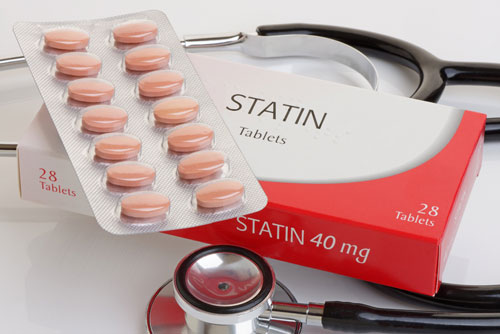We knew it was bad.
But we didn’t know it was this bad…
In April we told you about a study that showed statin drugs raise the risk of type 2 diabetes.
But now new research shows the danger of these cholesterol-lowering medications may be far greater than we thought.
The study was published in the journal Diabetes Metabolism Research and Reviews. Scientists looked at 4,683 people whom doctors considered to be candidates for statins. Eventually, 755 of them did go on the medications.[i]
The research team analyzed three years of the subjects’ health records. They found that statin users had twice the risk of becoming diabetic compared to those who don’t take the drug.
Worse still, patients who took statins for more than two years had more than three times the risk of diabetes. Can it be a coincidence that America began suffering an epidemic of type 2 diabetes at the same time statins came into wide use?
We don’t think so.
When statins first hit the market in the late 1980s, about 2.5% of Americans had type 2 diabetes. By 2017, that number had more than tripled to 9.4%.[ii] [iii]
4 Natural Heart Health Solutions
More studies are calling into question the safety of statins. There are more effective, less risky ways to improve your heart health:
1. Take omega-3 fatty acids. A study published in the journal Tanaffos found that consumption of omega-3s is linked to lower triglycerides, lower blood pressure, and reduced risk of death from heart disease.[iv]
You can get omega-3s in flaxseed, walnuts, and chia seeds. Fatty fish such as salmon, tuna, and mackerel are also excellent sources.
If you take fish for omega-3, look for brands that contain the triglyceride form of fish oil. It should be noted on the label.
2. Make it intense. High-intensity interval training (HIIT) may be the best form of exercise for your heart. It requires a fraction of the time of traditional cardio workouts.
The principle is simple…HIIT is adaptable to many different activities. This includes running, biking, swimming, calisthenics, or using a rowing, stair climber, or elliptical machine.
Warm up for three to five minutes doing your chosen form of exercise. Then do the exercise at the highest intensity level you can for the next minute. Slow down for the next minute or two to catch your breath. Then go hard again for another minute.
Repeat this process five to seven times. Afterward, do the activity slowly for at least two minutes to cool down.
3. Take potassium. Most people get way too much sodium in their diets and not enough potassium. If the two minerals are out of whack in your system, it can lead to high blood pressure. One study found that adding potassium to your diet will lower blood pressure.[v]
Great sources include avocado, tomato sauce, watermelon, winter squash, sweet potatoes, spinach, and beets. We don’t recommend potassium supplements. They can be tricky to take. Take too much and it can trigger heart rhythm problems.
4. Don’t eat inflammatory foods. Chronic inflammation is a major factor in heart disease. So avoid foods that cause inflammation.
The worst offenders are sugar, high-fructose corn syrup, trans fats (often found in processed foods), most vegetable oils except olive and coconut, and processed meats, such as cold cuts and beef jerky.
Editor’s Note: Prescription drugs can cause more problems than the conditions they are supposed to treat. Find out more by reading our special report, The Top 10 Dangerous Pharmaceutical Drugs—And Their Natural Alternatives.
Related Articles
Everyone Over 50 Needs This Heart Test
Antibiotics Most Dangerous Side Effect: A Heart Attack
Bone Broth Is All the Rage. Here’s What It Does to Your Heart.
Like this Article? Forward this article here or Share on Facebook.
[i]https://www.ncbi.nlm.nih.gov/pubmed/?term=10.1002%2Fdmrr.3189
[ii] https://www.cdc.gov/diabetes/statistics/slides/long_term_trends.pdf
[iii] https://www.cdc.gov/media/releases/2017/p0718-diabetes-report.html
[iv]https://www.ncbi.nlm.nih.gov/pmc/articles/PMC4153275/
[v]https://www.ncbi.nlm.nih.gov/pubmed/21403995

